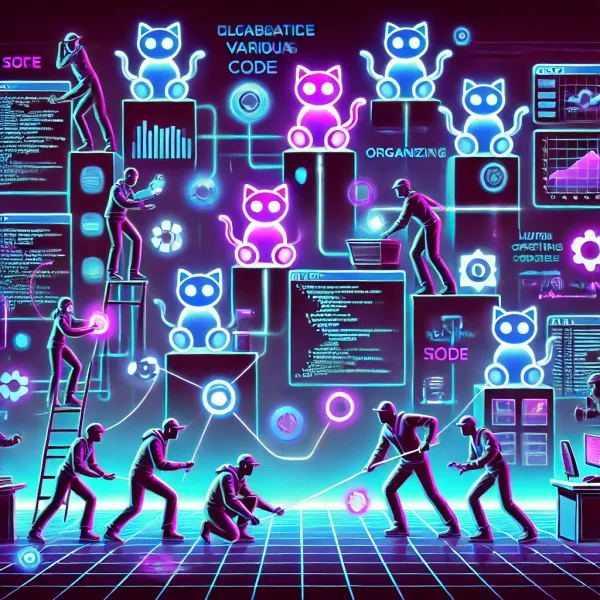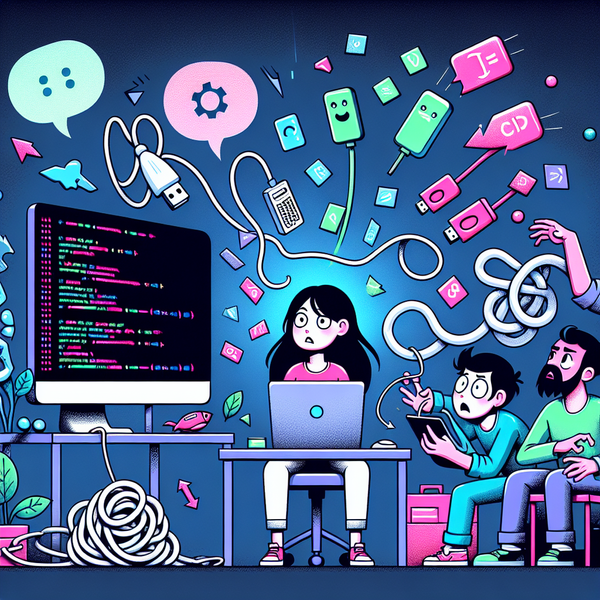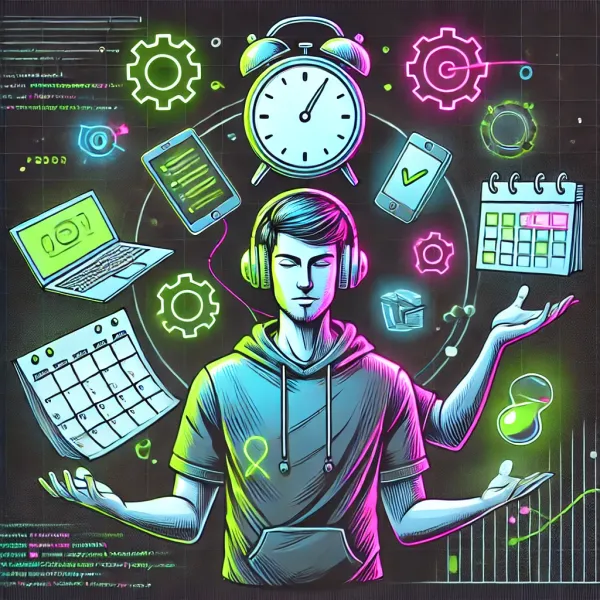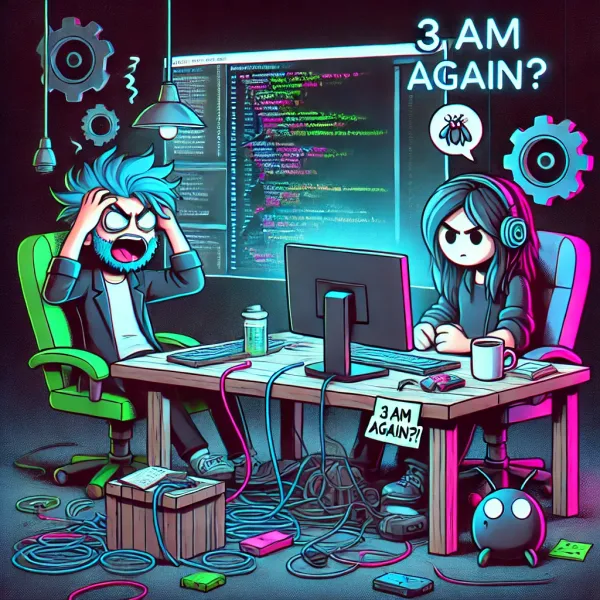Collaboration in Open Source Projects: Juggling Jellyfish, and Loving It
So, you want to contribute to an open source project. Maybe you've imagined yourself slinging code with the confidence of a rockstar, revolutionizing the world one GitHub pull request at a time. It’s messy, chaotic, and—believe it or not—absolutely worth it.
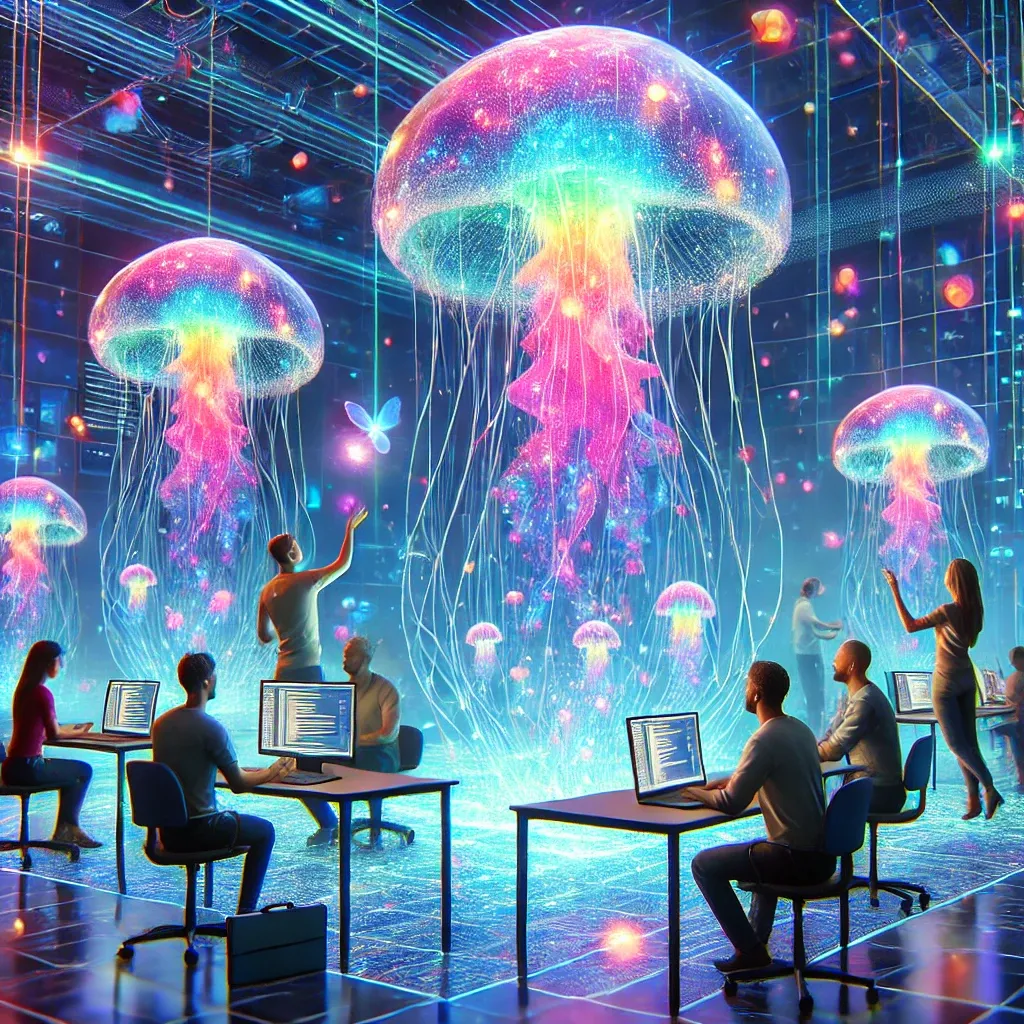
So, you want to contribute to an open source project. Maybe you've imagined yourself slinging code with the confidence of a rockstar, revolutionizing the world one GitHub pull request at a time. But then reality hits—you find yourself in a Slack channel trying to decipher someone’s cryptic message about a bug that might not even be a bug. Welcome to the world of open source collaboration. It’s messy, chaotic, and—believe it or not—absolutely worth it.
It’s All About Communication
Collaboration in open source is like trying to coordinate dinner plans with five people over text. Only those five people are in different time zones, speak different languages, and one of them insists on using a fork you’ve never heard of (looking at you, obscure Linux distros). The backbone of successful open source collaboration is communication—and I mean good communication. Not the kind where you vaguely mention something on a GitHub issue, and hope someone else takes over (spoiler: they won’t).
You need to be clear, concise, and mindful of others’ time. This means writing issues and pull request descriptions that are more informative than a tweet but less overwhelming than War and Peace. It’s about mastering the art of async communication—giving enough detail so someone across the globe, who will read it 12 hours later, can pick up where you left off without their brain short-circuiting.
Check Your Ego at the Door
Here's a harsh truth: in an open source project, no one really cares if you're a senior software engineer at Big Tech Inc. Code is the great equalizer, and in open source, collaboration isn’t about showing off; it’s about lifting each other up. If your code gets reviewed, chances are someone will rip it apart—politely, but thoroughly. It’s not a personal attack; it’s the nature of open source.
The key is to have thick skin. When your carefully crafted function is deemed "inefficient," don’t let your imposter syndrome take the wheel. Take a breath, read the feedback, and treat it like free, high-quality mentoring (because it is). And when you’re reviewing others' code, do it with empathy. Remember, there’s a person behind every line of code. A little kindness goes a long way.
Contributing Isn’t Just About Code
Not a fan of spending your weekends refactoring someone else’s spaghetti code? Don’t worry—contributing to open source isn’t limited to coding. There’s documentation, user support, design, marketing, and a million other things that make a project successful. In fact, one of the most underrated but vital skills in open source is writing killer documentation.
If you’ve ever spent hours trying to figure out how to install a project because the readme was essentially "good luck," then you know just how valuable good documentation can be. So, even if you’re not cranking out 1000 lines of code, updating a project’s docs, answering questions in the forums, or helping triage issues are all crucial ways to collaborate. And trust me—maintainers will love you for it.
Navigating Conflicts and Differences of Opinion
Wherever there are humans, there will be drama. It’s just a fact of life, and open source is no exception. Whether it’s two contributors arguing over code style or a disagreement on project direction, conflicts will happen. The trick is to handle them like an adult—not like that time you rage-quit your high school group project.
A lot of successful open source collaboration boils down to conflict resolution. When things get heated (which they will), remember to stay objective. Focus on the project’s goals, not on winning an argument. And if things really get out of hand, many projects have a code of conduct that you can turn to for guidance. Just remember: the person on the other side of the screen is likely doing their best, just like you are.
Find Your People
The beauty of open source is that it’s a community, and finding the right community can make all the difference. Not all projects are a good fit for everyone. Some have hundreds of contributors and move at lightning speed; others are small and looking for a couple of people to help keep things afloat. Don’t be afraid to shop around—look for a project that matches your vibe, interests, and availability.
Once you find the right group, collaboration stops feeling like work and starts feeling like hanging out with friends. You’ll learn from others, share some laughs, and build something meaningful together—which, after all, is why most of us got into tech in the first place.
Final Thoughts: The Payoff
Collaboration in open source might be messy, but it’s also rewarding in ways that are hard to describe. You’ll grow as a developer, become a better communicator, and gain the satisfaction of knowing that your work is helping people around the world. Sure, herding cats is hard—but sometimes, those cats come together to make something amazing.
So, grab your keyboard, leave your ego at the door, and dive in. It’s time to collaborate—chaos and all.

